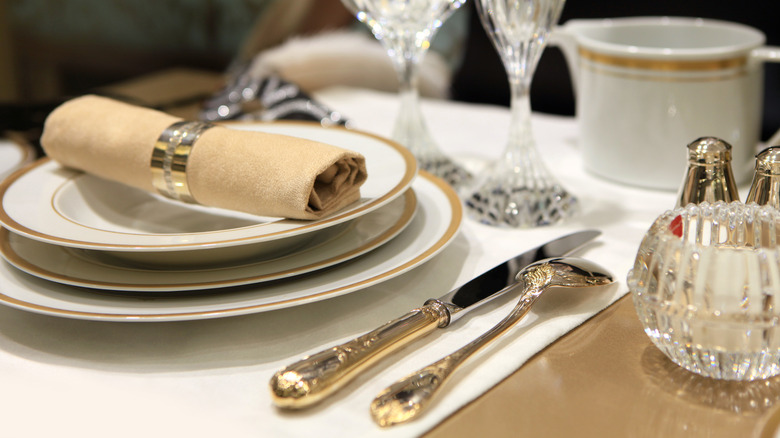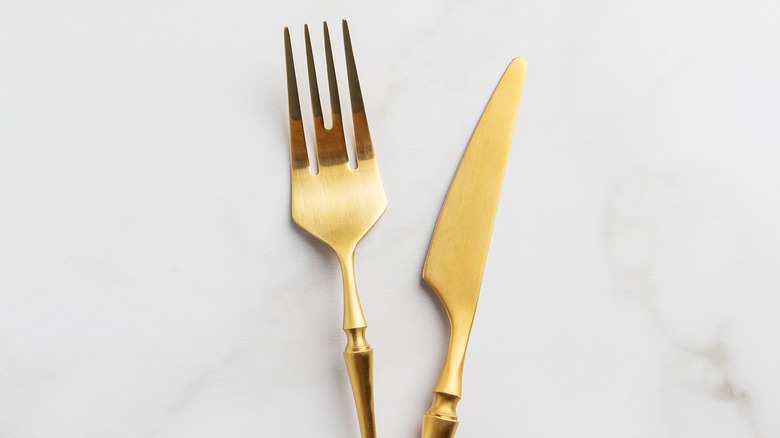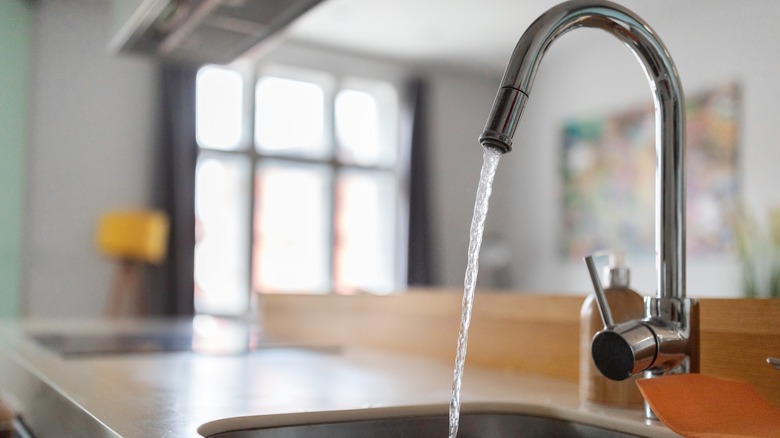Keep Baking Soda Away From Your Gold-Plated Dinnerware. Here's Why
Baking soda is the MVP of household staples, and for good reason. Sodium bicarbonate wears many hats around the house, from helping baked goods taste delicious to deodorizing shoe closets to lifting the most stubborn stains. However, there is more than one major, albeit hidden, downside of cleaning with baking soda that you should be aware of, especially if you own a gold-plated dinnerware set. Antique dishware and gold-coated cutlery are among the top household items that you should never clean with baking soda if you want to preserve their impressively shiny exterior.
Baking soda should also be avoided when cleaning other delicate items such as antique silver and stemware. Simply put, the texture and properties of sodium bicarbonate do not mix well with gold plating. But you'll be happy to learn that there is a much better way to keep your gold dinnerware set in beautiful condition that doesn't involve baking soda.
What baking soda will do to your gold-plated dinnerware
Baking soda has terrific antibacterial properties and is generally used as a substitute for dish soap and chemical detergents. The gritty, abrasive texture works wonders on stains and dirty surfaces. Plus, it is also an alkaline substance and can dissolve grease and grime when mixed with water. However, it's important to note that baking soda is not a one-size-fits-all solution, especially when it comes to soft metals like gold and this applies to gold plating as well.
Baking soda may do more harm than good to your gold-coated dinnerware. Its coarseness could easily scratch your cutlery and dishes, or even corrode the gold layer altogether. Gold dinnerware is delicate and should not be scoured with a sponge, especially in combination with an alkaline substance like baking soda. Gold plating should generally be cleaned with mild soap and water, as abrasive alkaline products will damage and strip the finish over time.
The best way to clean gold-plated dinnerware
Now that you know to keep your baking soda far away from your gold-plated dinnerware, how should you clean it to retain the shiny exterior? To protect the delicate gold coating, you will need to wash your tableware and dishes carefully by hand. Other good tools to have on hand include a soft-bristled toothbrush and non-abrasive cloth or microfiber towel. Fill a basin with warm water and mild dish soap and submerge your dinnerware in the solution for a few minutes to get rid of surface residue. Do not soak the items overnight. Gently scrub hard-to-reach areas with the toothbrush using circular motions and light pressure.
Finally, rinse each piece thoroughly and pat to dry or air dry, then polish with another soft, clean cloth. To prevent accidental scratches, consider storing gold-coated tableware in a case. The best way to preserve their condition is to handwash them after every use with warm water and mild dish soap. Another word to the wise is to avoid the dishwasher completely. You can try setting it to a fast cycle with a lower water temperature, but hand washing is generally your safest bet. With these tips in mind, your gold dinnerware will stay in sparkling condition for many years and you can save the baking soda for baking.


